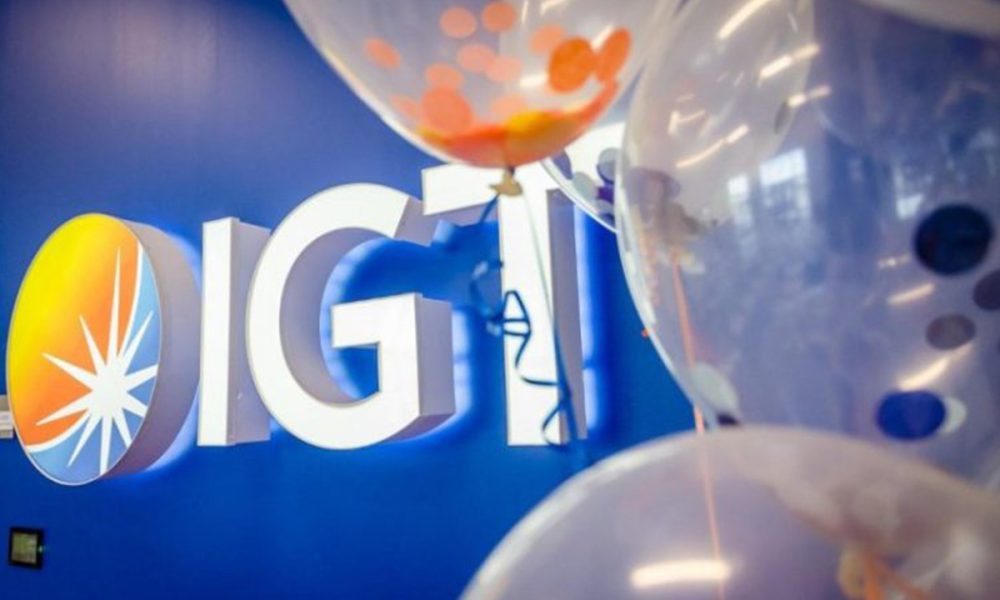Canada
US data protection: Online habits and data breaches

ProtonVPN’s survey reveals US online data protection habits and how common data breaches are.
As an organization building an internet where privacy is the default, Proton are always interested in how people protect themselves and their data online. They asked 1,000 randomly selected people over the age of 16 questions about their online habits to reveal what the average US citizen is doing to secure their online data.
The survey results indicate just how common data breaches are, which data people are most concerned about being exposed, as well as the level of protection individuals use to keep their information safe.
ProtonVPN have highlighted the key findings from the survey below.
Gmail is the most common email provider, but iCloud is popular among people under 25
The survey asked respondents which email provider and internet browsers they used most.
Gmail came out on top as the most popular email provider, with 73.71% of respondents using a Gmail account.
Apple’s email service, part of the iCloud suite, was the fourth most popular overall. However, the results showed a sharp increase in iCloud accounts within the 16 to 24-year-old age bracket (over 18% had an iCloud account compared to under 10% of those above this age range), signaling a conspicuous appeal to the younger generation.
When evaluating email service providers, it’s important to consider their track record as well as the protections they have in place. Some email providers, such as Yahoo and Outlook, have suffered major data breaches. Other email providers, such as Gmail, have a good security record but scan your emails, track your purchasing habits, and share access to your messages with third parties. And, unfortunately, none of these popular providers, including Apple’s email service, offer end-to-end encryption or zero-access encryption.
ProtonMail uses zero-access encryption on all emails so that we cannot read your messages, meaning no third parties can read them either. It also means that even if there were a data breach, your messages would remain secure.
Most providers do now offer two-factor authentication for their logins, and you should always use this security measure. However, 2FA by itself won’t always be enough to protect your account, depending on the type of breach. It also cannot prevent your provider from selling or sharing your data. For a more private email experience, you need to use an encrypted service, such as ProtonMail, that protects all messages.
For internet browsers, Google Chrome came out on top with 63.45% of people using Chrome as their day-to-day browser, while Safari came second with 26.29% of people using Apple’s chosen browser as their main search provider.
Many people use Big Tech services simply because they come preinstalled on their devices or offer name recognition and speed. Yet these services are built on a business model of exploiting your data for advertising purposes, which is at odds with privacy. This is especially true with browsers, which is why using alternative services that minimize data collection is the best way to find what you’re looking for while handing over the least amount of information.
72% of people admit to using public WiFi networks without adequate security measures, despite privacy warnings
Though many may feel they are as careful as possible with their online security, do we give this as much thought when we are on our phones or on the move?
Chances are, when you have been out grabbing dinner, on holiday, or working from a coffee shop, you’ve logged into a public WiFi network. Our survey revealed that over 72% of people use public WiFi networks, despite the risks they pose to your privacy.
These WiFi networks often will make you agree to terms and conditions that allow them to monitor your browsing and link to your email so that they can sell that data to advertisers.
Having a trustworthy VPN running on your device can help with this issue, as the VPN encrypts your data, preventing the network operator from monitoring your online browsing.
Over a quarter of people surveyed had their data exposed in a breach
As part of the survey, we additionally asked respondents to enter their main email address into a website called haveibeenpwnd.com. This website is free to use and checks whether an email address has been exposed in an online breach.
Our survey found that 25.8% of people have had their data exposed in a breach online at least once. Over 10% hadn’t even realized this was the case before checking for the survey.
The website also checks if your email address has been subject to a “paste”. “Pasting” is a type of data breach where hackers copy and paste personal information, such as email addresses, names, passwords, and so forth, on specific websites, like PasteBin. This makes it much easier for others to obtain and share a person’s data. 20% of people who took part in our survey found that their personal information had been subject to “pastes”.
We asked respondents to specify the type of information they found being exposed the most. Three kinds of data were especially common:
- Email Addresses (57.19%)
- Passwords (38.36%)
- Usernames (33.22%)
The survey also asked respondents to specify the type of companies that had been breached. The social media industry had the highest percentages of people affected by a data breach (42.12%), followed by gaming (25%) and tech-based websites (20.55%).
A larger breakdown can be seen below:
| Social media | 42.12% |
| Gaming | 25.00% |
| Technology | 20.55% |
| E-commerce | 18.84% |
| Lifestyle | 17.81% |
| Banking | 17.12% |
| Creative | 11.64% |
| Fitness | 10.96% |
| Adult industry | 8.56% |
Unfortunately, there isn’t much anyone can do when an external company suffers a data breach. People trust that a company or website has as much security in place as possible to keep their online data safe. This is not always the case, and even companies with high security levels have suffered large data breaches.
Most large social media platforms have suffered data breaches, including Facebook in 2019 and TikTok, Instagram, and Youtube, where the information of millions of users has been exposed. In this case, there is nothing more these individuals could have done to protect their data.
If people are worried about their information being exposed from websites such as social media, sharing as little personal data as possible on these accounts will reduce the amount of data at risk in any potential breach.
82% of people are concerned about having their personal data exposed in a breach, but less than 21% would change their online habits
The team at ProtonVPN wanted to find out not just what information has been exposed online, but ultimately what information people are most concerned about being exposed.
The survey revealed that the three types of information people are most concerned about being exposed in a breach are:
- Bank details (54%)
- Passwords (43.53%)
- Physical addresses (18.13%)
Overall, 82% of people admitted to being worried about having their information exposed in online data breaches.
However, when we asked the same survey respondents about the precautions they take to protect themselves and their data online, their responses did not match this level of concern:
- Less than 23% of people said they read privacy policies to ensure their data will not be sold to third parties.
- Less than 20% of people said they have two-factor authentication (2FA) set up on all accounts, which keeps your accounts safe if your password is stolen or exposed.
- Moreover, when asked after taking the survey whether they plan to do anything more to keep themselves protected online, only 20.82% said they plan to do so.
But for those who want to take extra precautions, what more can you do to make sure they keep their data and online usage as private and secure as possible?
Steps you can take to protect yourself
Though a company data breach is not something an individual can protect themselves from, there are several precautions you can take to keep your data and online usage as secure as possible.
The security experts at ProtonVPN have given their tips on what to do if you are worried about your data being exposed online:
- Where possible, set up 2FA and extra steps to sign in to ensure your accounts are as safe as possible. With 2FA, even if someone obtains your login details, they will not be able to access your account without also having access to your second authentication pass.
- Don’t sign up for or share personal information with a website or service unless it is strictly necessary. We know that this is not easy with social media. However, we recommend sharing as little personal information as possible.
- When checking out, always untick any boxes that ask if they can keep your payment information for the next time you shop.
- Make sure all your passwords are different for each of your accounts, which is made easier by using a password manager. This means that if your data is obtained on one website’s data breach, hackers will not have access to your other accounts.
Sources and Methodology
Based on a survey of 1,000 US citizens aged 16 and over and picked at random from across the US, which took place in November 2021.
Censuswide conducted this survey on behalf of ProtonVPN.
Powered by WPeMatico
AGCO
AGCO Fines Great Canadian Casino Resort Toronto $350,000 for Serious Regulatory Violations Linked to Impromptu After-Party on Gaming Floor

The Alcohol and Gaming Commission of Ontario (AGCO) has issued monetary penalties totaling $350,000 against Great Canadian Casino Resort Toronto for multiple violations of provincial gaming standards. The penalties follow an impromptu after-party that was permitted to take place in the pre-dawn hours directly on the casino’s gaming floor.
On September 27, 2024, an electronic dance music event attended by thousands of people was hosted in the theatre adjacent to the casino at Great Canadian Casino Resort Toronto. The event was marked by widespread intoxication, disorderly behavior, and numerous criminal and medical incidents – both inside and outside the venue – including alleged assaults, drug overdoses, and acts of public indecency. Although paid duty officers were present, additional police and emergency services were required to manage the situation.
In the midst of this high-risk environment, casino management approved an unscheduled request by the performing artist to host an after-party on the active gaming floor. The artist and more than 400 guests were permitted onto the gaming floor where the artist was allowed to perform amidst operational table games and gaming machines – without any prior risk assessment or planning.
As a result, security personnel were unable to effectively control the casino floor, including witness reports that an attendee was seen climbing onto slot machines. Failure to maintain appropriate control compromises the security, safety, and integrity of the casino floor. Following the conclusion of the event, the operator failed to promptly report these incidents to the AGCO as required.
Based on the findings of its review, the AGCO’s Registrar has issued an Order of Monetary Penalty (OMP) totaling $350,000 against Great Canadian Casino Resort Toronto. These penalties address critical failures in their operations, incident reporting, employee training, and the management of disturbances.
A gaming operator served with an OMP has 15 days to appeal the Registrar’s decision to the Licence Appeal Tribunal (LAT), an adjudicative tribunal that is part of Tribunals Ontario and independent of the AGCO.
“Casino operators have a fundamental duty to control their gaming environment. Great Canadian Casino Resort Toronto’s lapses in this incident compromised the safety of patrons and the security and integrity of the gaming floor,” Dr. Karin Schnarr, Chief Executive Officer and Registrar of AGCO, said.
The post AGCO Fines Great Canadian Casino Resort Toronto $350,000 for Serious Regulatory Violations Linked to Impromptu After-Party on Gaming Floor appeared first on Gaming and Gambling Industry in the Americas.
Canada
IGT and Atlantic Lottery Sign Eight-Year Video Lottery Central System Technology Agreement

International Game Technology PLC announced that its subsidiary, IGT Canada Solutions ULC (hereinafter “IGT”), signed an eight-year agreement with Atlantic Lottery to supply its IntelligenEVO video lottery central system technology across Atlantic Canada. The agreement includes the option for multiple extensions and positions the Atlantic Lottery to become the first World Lottery Association (WLA)-affiliated lottery operator to deploy IGT’s next-generation central management system in a game-to-system (G2S) distributed market.
“By leveraging IGT’s IntelligenEVO technology, Atlantic Lottery will power its video lottery network with the industry’s best-in-class central system and position itself to maximize future contributions to good causes. As an organization that prioritizes system security and exceptional player experiences, Atlantic Lottery believes that IGT’s IntelliegnEVO solution will help generate high player satisfaction and optimal network performance,” said Michael MacKinnon, Atlantic Lottery VP, Product.
“As a long-time supplier to Atlantic Lottery, IGT looks forward to helping the Lottery achieve its growth and player engagement goals with our leading-edge IntelligenEVO video lottery central system. IGT’s IntelligenEVO is a scalable technology for the WLA market that is backed by decades of experience and operator feedback, and maximizes the benefits of real-time data, cloud-based technologies and in-depth analytics,” said David Flinn, IGT SVP Canada, EMEA and LATAM, Gaming Sales.
With peak system security, network availability and responsible gaming functionalities, IntelligenEVO is a reliable, scalable solution that can meet the needs of today and in the future. The solution will accelerate time-to-market and enables the Atlantic Lottery to benefit from the system’s suite of player-focused functionality. The technology’s G2S and open API design optimizes data collection and delivery and will enable Atlantic Lottery to customize their program for evolving player needs.
The post IGT and Atlantic Lottery Sign Eight-Year Video Lottery Central System Technology Agreement appeared first on Gaming and Gambling Industry in the Americas.
BetRivers
NetGaming Goes Live in Ontario with Rush Street Interactive via BetRivers Platform

NetGaming, a fast-growing online casino content supplier, is proud to announce its launch in Ontario with Rush Street Interactive, Inc., a leading online casino and sports betting company in the United States, Canada and Latin America. This strategic collaboration marks a significant milestone for NetGaming as it continues to expand its footprint across regulated North American markets.
As part of the launch, Ontario players on BetRivers can now enjoy a diverse portfolio of NetGaming titles, known for their high-quality graphics, immersive gameplay, and unique themes. Standout games such as Zeus’s Thunderbolt, Bison Gold, and Fireball Inferno are among the first to go live, with additional titles set to follow soon.
This partnership is just the beginning. NetGaming plans to extend its collaboration with Rush Street Interactive into Michigan, New Jersey, Pennsylvania, Delaware, and Mexico over the coming months.
Pallavi Deshmukh, CEO of NetGaming, commented: “We are thrilled to go live with Rush Street Interactive, a powerhouse operator with a strong presence and loyal player base. This launch marks a significant milestone in our
North American expansion strategy and underscores our commitment to delivering exceptional gaming experiences tailored to local player preferences across the region.”
Richard Schwartz, CEO of Rush Street Interactive, commented: “We are pleased to partner with NetGaming to bring innovative, premium games to our players in Ontario. This collaboration aligns with our strategy to offer world-class
entertainment through engaging, action-packed online casino games. We look forward to expanding this partnership into additional regulated markets in the months ahead.”
This strategic partnership highlights both companies’ dedication to providing high- quality, innovative, and responsible entertainment to players in regulated markets.
The post NetGaming Goes Live in Ontario with Rush Street Interactive via BetRivers Platform appeared first on Gaming and Gambling Industry in the Americas.
-

 AGCO7 days ago
AGCO7 days agoAGCO Fines Great Canadian Casino Resort Toronto $350,000 for Serious Regulatory Violations Linked to Impromptu After-Party on Gaming Floor
-

 Africa7 days ago
Africa7 days agoALA Hosted Seminar on Artificial Intelligence and Cybersecurity
-

 Canada7 days ago
Canada7 days agoIGT and Atlantic Lottery Sign Eight-Year Video Lottery Central System Technology Agreement
-

 Africa6 days ago
Africa6 days agoDRC Signs MoU for Public-Private Partnership with Burundi’s East African General Trade Company
-

 First7 days ago
First7 days agoFIRST and Genius Sports Extend Landmark Data Partnership, Powering Continued Growth
-

 Latest News7 days ago
Latest News7 days agoUnlock Top-Tier Deals and Careers: Parimatch joins iGB L!VE 2025
-

 Blokotech7 days ago
Blokotech7 days agoBlokotech unveils Cristian Tonanti as new Casino Partnership Manager
-

 Brazil7 days ago
Brazil7 days agoEsportes da Sorte holds forum on “Integrity in Sports” with Ceará and Náutico


















